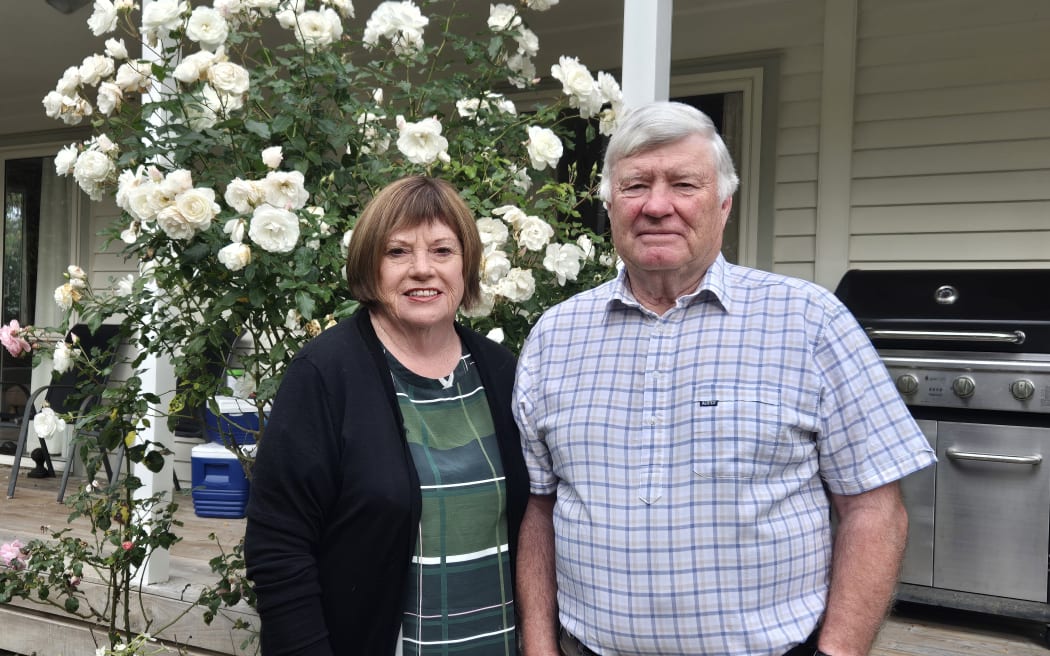
Sue and Richard Hay. Photo: Gianina Schwanecke / Country Life
For more than 40 years, Richard and Sue Hay have called Tarewa home.
The 870-hectare sheep and beef farm off Castlepoint Road, about 20 minutes east of Masterton, started as a ballot block, which Richard took over from his father.
Tārewa, which means mortgage or loan in te reo Māori, was won by Richard's father in 1949 as part of the rehab or ballot block scheme.
The government purchased blocks of land from larger stations to give to returned servicemen, whose names were drawn from a ballot.
"Some of the bigger stations had bits cut off them to help with all these returned servicemen coming back home, to get some of the land broken in and more productive," Richard says.
His father served in Italy, was wounded and then returned home to farming.
"Luckily, his name came out of the hat. I just followed in my father's footsteps like my brother did."
While Richard's brother later took over a family block in Pirinoa, he and Sue moved to Tarewa in 1980.
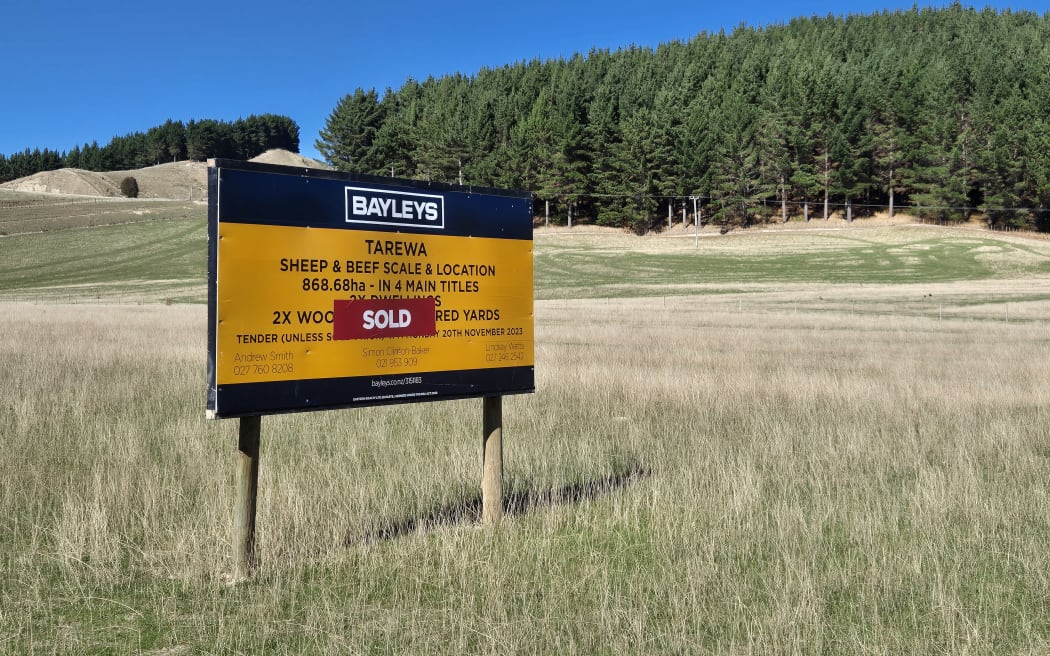
Tarewa will go into forestry soon. Photo: Gianina Schwanecke / Country Life
The farm started out as five very large paddocks, and Richard later purchased a neighbouring ballot block. Today, the farm is spread over more than 100 paddocks.
It has recently been sold into forestry, meaning the 4000 breeding ewes and 200 or so Hereford-Angus cattle that usually graze the land are to be sold.
Along with the livestock, a farm clearance sale saw agricultural, hay-making, fencing, docking and stock-handling gear put up for auction. The catalogue represented a lifetime of work on the land.
The decision to sell, especially into forestry, wasn't an easy one.
Thirteen years ago, Richard and Sue lost their son James in a car crash. He had been preparing to take over the farm, and his death meant Richard once again took the reins.
"The last five years have been pretty tough."
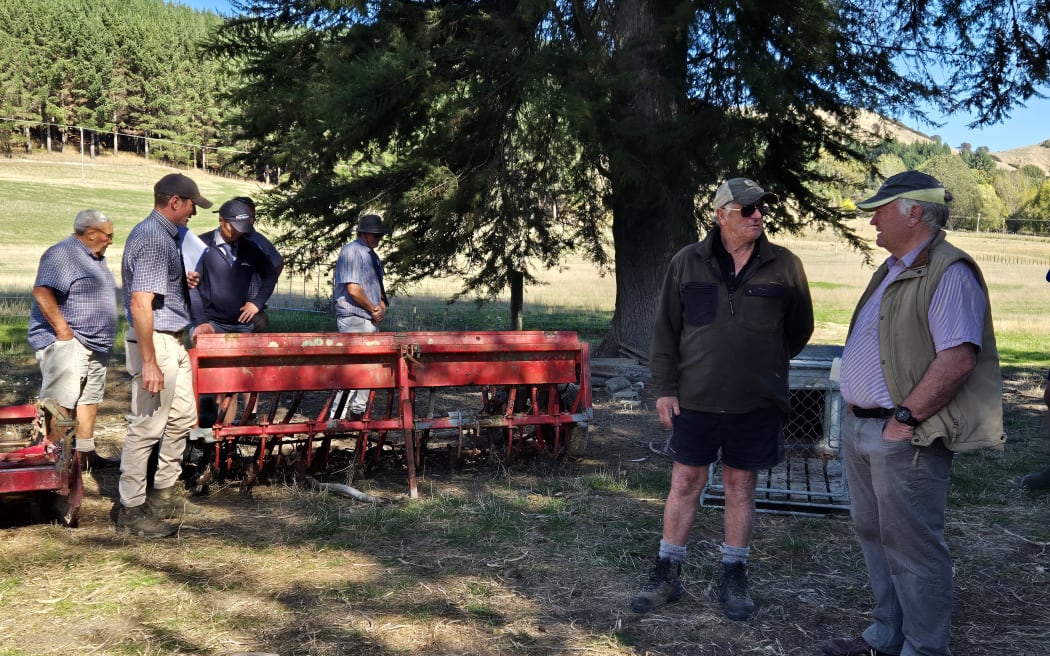
Richard Hay (right) talks to neighbour Paul Kuchenbecker (left) about one of the items for sale. Photo: Gianina Schwanecke / Country Life
Trying economic conditions - such as high interest rates, possibly worse than those experienced when the Hays first started farming - have prompted the sale.
"One of the positives at the moment is beef. Lamb has gone down at the moment. I think another couple of years, once the few hiccups come out of the system, it will pick up."
The challenging landscape was reflected at the clearing sale where some bidding was lower than expected.
"Some things went cheap and some others went for better money than I thought they would, should," Richard says.
Dozens of neighbours and other farmers attended the sale. While the "big ticket item" - Richard's tractor - didn't sell, plenty of other items did.
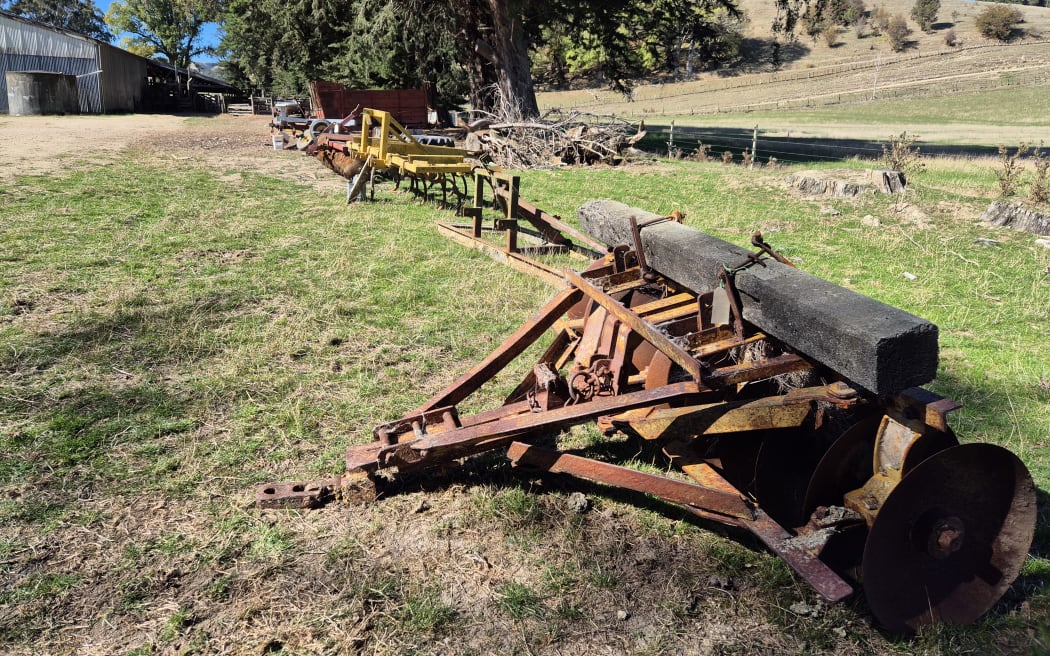
Some of the agricultural plant on offer. Photo: Gianina Schwanecke / Country Life
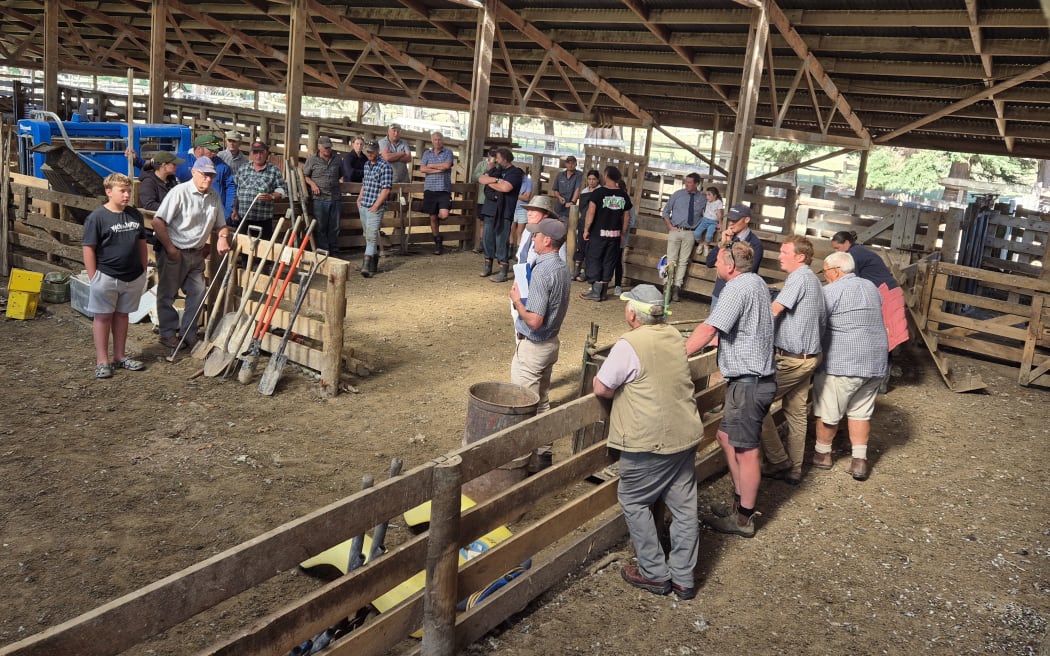
The sale continues inside the woolshed. Photo: Gianina Schwanecke / Country Life
The sale operated like an on-farm auction, with interested parties invited to bid via a subtle tilt of a cap, a nod or with the yellow cards provided.
His dad's old pack saddle, which Richard himself once used, sold for $50 to the same gentleman who bought a pair of old hand shears - a self-described collector of "old shit".
Murray Tomlin has known the Hay family for years, farming a rehab block just down the road.
He helped with setting up the sale and came out to support Richard.
"He's the last other rehab farmer left. Most of the second generations took over those farms, bar one. Now of all those generations, Richard is the last to go and I'm the last man standing.
"It's quite sad to feel both those blocks bar a couple of [paddocks] will all be in pine trees. Now they're getting thicker and thicker from here to the coast."
Tomlin was sad to be losing longtime neighbours, adding the increasing number of sheep and beef farms being converted to forestry was "ruining rural communities".
The rise of afforestation was also reflected in the sales results.
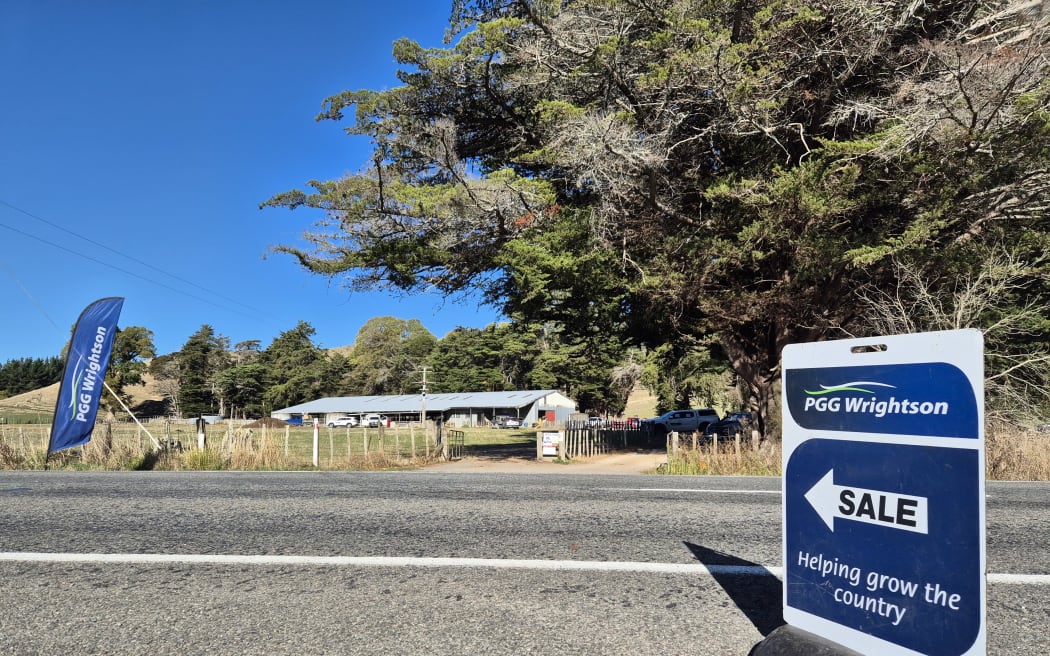
PGG Wrightson organised the clearing sale. Photo: Gianina Schwanecke / Country Life
Wayne Stewart of PGG Wrightson, who organised the sale, says farm clearance sales have become more common in recent years.
"I think that's been reflected in some of the prices of ... equipment being sold, because there are so many farms going into pine trees now there almost is a surplus of equipment out there in the farming sector."
Overall, Stewart was happy with the sale results.
"Some of the big ticket items didn't sell but we've got people still showing interest and one's off to talk to his bank manager so that's a bit of a sign of the times."
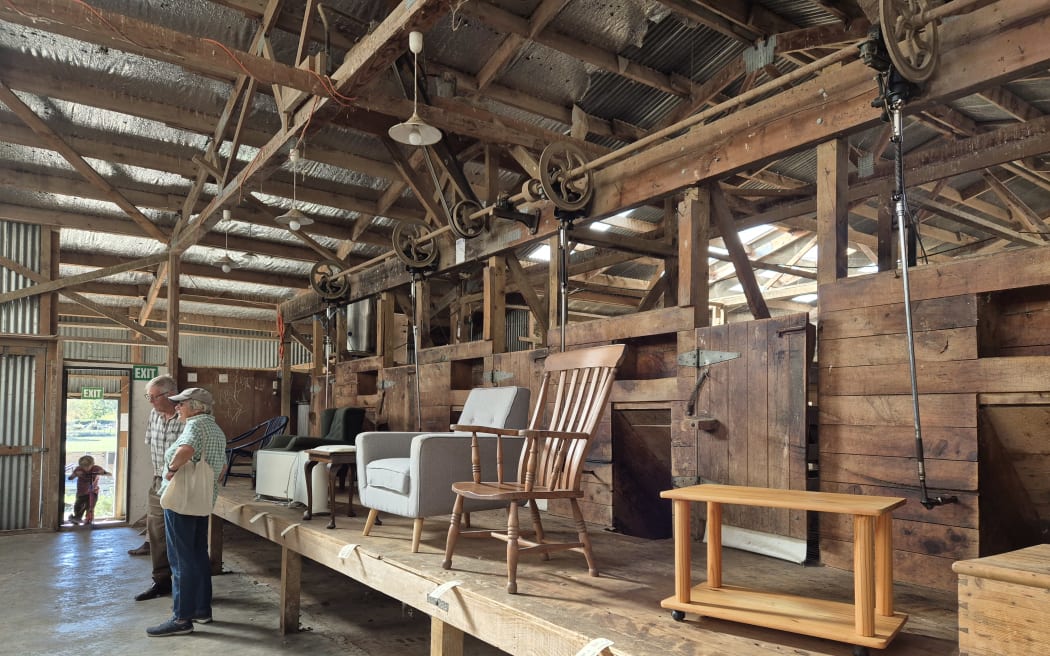
Inside the woolshed, a range of household items and furniture, including several arm chairs, was also on offer. Photo: Gianina Schwanecke / Country Life
He says there were "one or two disappoints, but lots of surprises". He walked away with a kayak of his own "for the grandkids" and a grader blade for the potholes at home.
Richard and Sue will move into their new house in town early next month.
A few sheep will remain on the farm to "keep the grass under control" until it is planted up in June.

